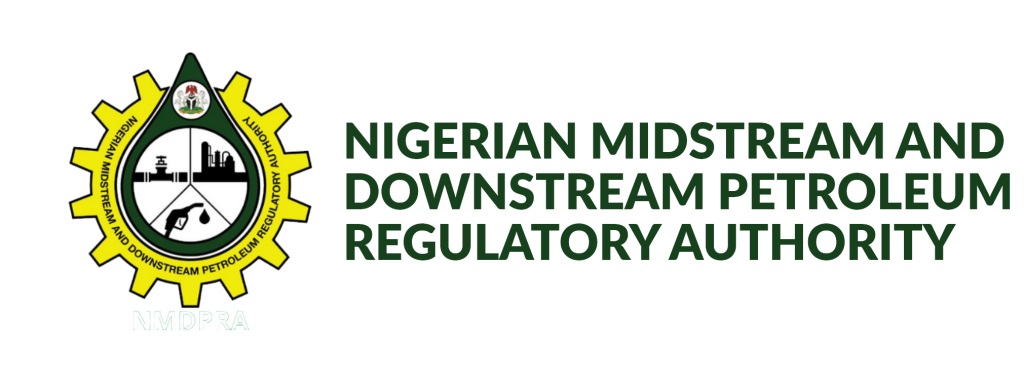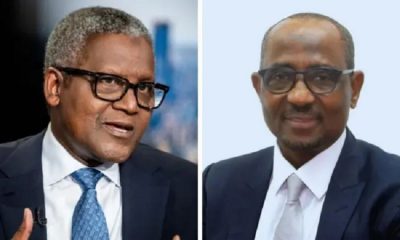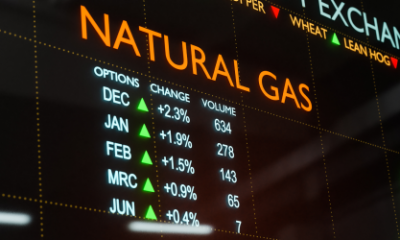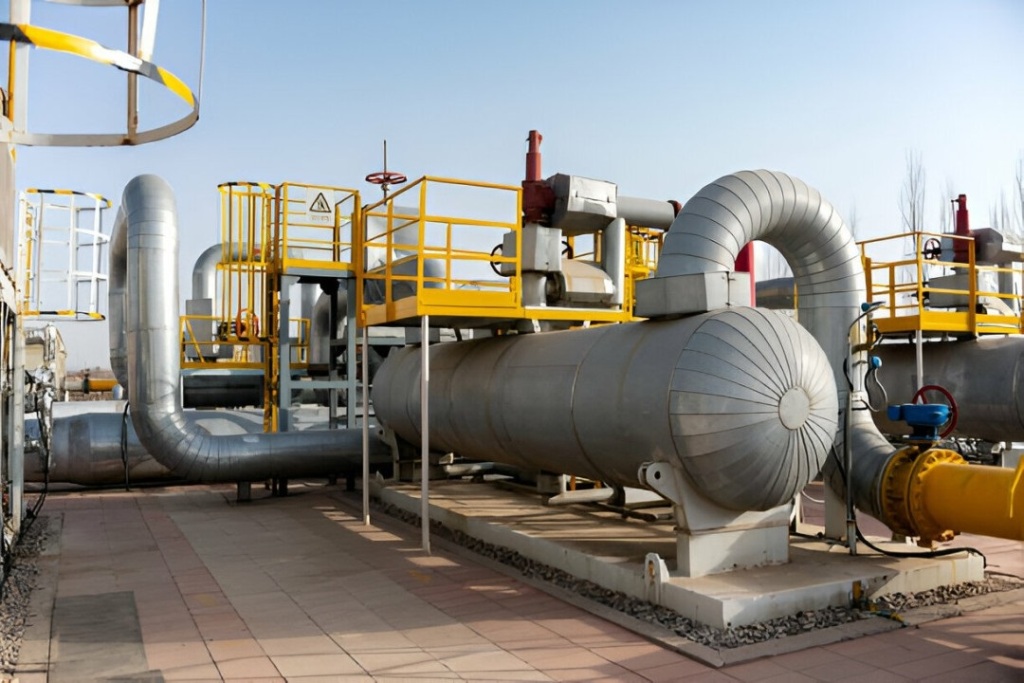Economy
N100bn Debt: Fuel Scarcity Looms as IPMAN Threatens to Halt Services
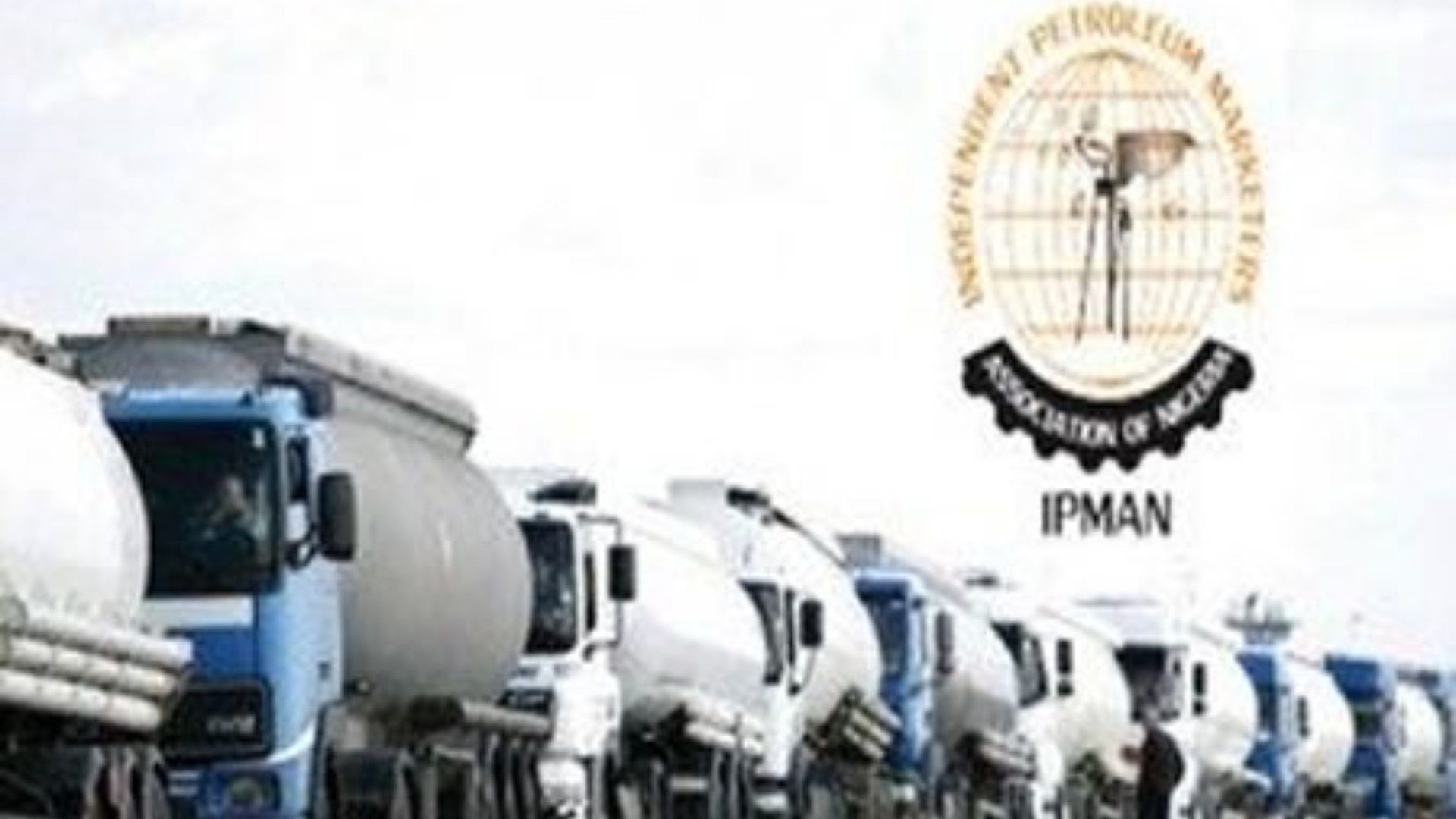
By Adedapo Adesanya
The Independent Petroleum Marketers Association of Nigeria (IPMAN) on Monday gave a seven-day ultimatum to withdraw services across the country over the non-payment of bridging claims amounting to N100 billion.
In January, the Nigerian government promised to clear the N100 billion bridging claim debt owed to petrol marketers and asked for a 40-day window.
The Chairman of the IPMAN Depot Chairmen Forum, Mr Yahaya Alhasan, during a press conference in Abuja yesterday, said the Nigerian Midstream and Downstream Petroleum Regulatory Authority (NMDPRA) has failed to clear the debt 40 days after promising to do so in the presence of the National Security Adviser (NSA), Mr Nuhu Ribadu.
He revealed that northern depots, comprising the Jos depot, Gusau depot, Minna depot, Suleja depot, Kaduna depot, Kano depot, Gombe depot, Yola depot, and the Maiduguri depot, have become completely grounded due to this lingering debt.
IPMAN also frowned at the 5 per cent levy imposed on its members by NMDPRA.
“If NMDPRA doesn’t pay our money within seven days, we are going to withdraw our services across the nation.”
“We are extremely frustrated that one year after our last demand as a forum, requesting the payment of over N100 billion owed to us, the management of the NMDPRA has deliberately ignored our request, even after making clear promises to pay us.
“One of those promises was made by the NMDPRA at the stakeholders’ meeting convened on the eve of the last strike action declared by NARTO. At that stakeholders’ meeting, the Nigerian Association of Road Transport Owners (NARTO), listed this same IPMAN bridging claim as part of their demands before the strike action would be called off.
“The NMDPRA promised to offset the bridging claims in 40 days, even in the presence of the National Security Adviser, Mal. Nuhu Ribadu, and the DG DSS, Mr. Adeola Ajayi. However, 40 days have today become months with no hope of our payment.
“Hence, the nine northern depots comprising the Jos depot, Gusau depot, Minna depot, Suleja depot, Kaduna depot, Kano depot, Gombe depot, Yola depot, and Maiduguri depot, have become completely grounded due to this lingering debt.
“For the avoidance of doubt, it is imperative to state again that this debt being owed to us is money belonging to marketers, which was deducted from us at the point of payment for products to settle our bridging allowances.
“We have also continued to record the deaths of our members, the closure of their businesses, the retrenchment of staff, and the takeover of their business premises by commercial banks, all arising from this refusal of the NMDPRA to pay us our money,” he added, according to a communiqué.
The group also lamented the worrisome development of NMDPRA imposing several levies on its members.
“Chief among them is the imposition of a 5 per cent commission accruable to them from the sale of any petrol station outlet in Nigeria. Tell me, when has the NMDPRA turned itself into a real estate agency, collecting a commission on the sale of retail petrol outlets? There is no gainsaying the fact that the downstream retail industry is an ever-evolving one.
“So, as IPMAN members, we go the extra mile to renovate our outlets occasionally to meet international best practices.
“However, the NMDPRA has also made this very difficult for us, as they have subjected our members to paying bizarre levies whenever we deem it fit to renovate our petrol outlets.
“These are just a few of the many distressing levies they have forced on us. These are not only anti-developmental but also unconstitutional, and we are demanding their immediate suspension.
“As a forum of law-abiding Nigerians, we sincerely believe that we have given the NMDPRA enough time to pay us our money in bulk and clear the bridging claims.
“But in view of their constant refusal, we have therefore decided to liaise with our sister organizations, the PTD and NARTO, in order to take collective action in due course.
“As members of IPMAN, it is important to state that we also own a sizable number of petroleum tankers driven by the PTD, and we may be forced to withdraw our tankers from loading petroleum products in a bid to enforce the immediate payment of our bridging and NTA claims.
“We hereby call on the Federal Government of Nigeria, headed by President Bola Tinubu, to fully intervene in this prolonged dispute between the Depot Chairmen of the Independent Petroleum Marketers Association of Nigeria, IPMAN, and the Nigerian Midstream & Downstream Petroleum Regulatory Authority, NMDPRA.
“We will not hesitate to take immediate action if our demands are not met, beginning Monday, February 24, 2025.
“We call on our members nationwide to remain resolute and law-abiding as we wait for our demands to be met and addressed by the NMDPRA,” the group stated.
Economy
Lokpobiri Begs Lawmakers to Reschedule Oil Revenue Executive Order Probe

By Adedapo Adesanya
A joint National Assembly probe into President Bola Tinubu’s new oil revenue executive order was stalled on Thursday following a request for more time by the Minister of Petroleum Resources, Mr Heineken Lokpobiri.
The hearing was convened to scrutinise the executive order directing that royalty oil, tax oil, profit oil, profit gas and other revenues due to the Federation under various petroleum contracts be paid directly into the Federation Account.
Mr Lokpobiri told lawmakers that although he attended out of respect for parliament, he had been notified of the hearing only a day earlier and had not obtained all the relevant documents needed to defend the policy adequately.
He appealed for the session to be rescheduled.
Co-chairman of the joint committee and Chairman of the Senate Committee on Gas, Mr Agom Jarigbe, put the request to a voice vote, and lawmakers approved the adjournment.
A new date is expected to be communicated to the minister.
The executive order signed last week also scrapped the 30 per cent Frontier Exploration Fund created under the Petroleum Industry Act (PIA) and discontinued the 30 per cent management fee on profit oil and profit gas previously retained by the Nigerian National Petroleum Company (NNPC) Limited.
Anchored on Sections 5 and 44(3) of the Constitution, the presidency said the directive was aimed at safeguarding oil and gas revenues, curbing excessive deductions and restoring the constitutional entitlements of federal, state and local governments to the
However, the order has sparked criticism within the industry, one of which was from the Petroleum and Natural Gas Senior Staff Association of Nigeria (PENGASSAN), whose president, Mr Festus Osifo, called for an immediate withdrawal of the order, warning that it could undermine the PIA and erode investor confidence.
Meanwhile, at another session, the Chairman of the Senate Committee on Finance, Senator Mohammed Sani Musa, disclosed that President Tinubu would soon transmit proposals to amend certain provisions of the PIA to align with current economic realities.
He noted that while many expect the executive order to boost revenue automatically, Nigeria has yet to achieve its desired income levels.
He did not specify which sections of the law would be targeted, but suggested that the drive to enhance revenue generation would necessitate legislative adjustments.
The PIA, signed into law in 2021 by the late ex-President Muhammadu Buhari, overhauled the governance, regulatory and fiscal framework of Nigeria’s oil and gas sector, commercialised the NNPC and restructured revenue-sharing arrangements.
Economy
NGX Group Declares N2 Final Dividend, 1-for-3 Bonus Issue for FY’25

By Aduragbemi Omiyale
Shareholders of Nigerian Exchange (NGX) Group Plc will receive one new share for every three held as of April 10, 2026, as a bonus, according to a proposal from the board.
This is in addition to a final dividend of N2.00 proposed by the board to shareholders for the 2025 fiscal year, which raised the total dividend for the year to N3.00, according to the financial statements of the company filed with NGX Limited.
Last year, NGX Group recorded a sterling performance, with its earnings growing by 36.0 per cent to N22.9 billion from N16.9 billion due to sustained growth across core business segments, improved customer penetration on the back of increased investor activity and rising investor confidence.
The operating profit in the year increased by 44.4 per cent to N11.8 billion, while pre-tax profit jumped to N15.6 billion from N13.6 billion in 2024, with the earnings per share (EPS) at N4.75.
As for its balance sheet, total assets increased to N71.0 billion from N68.0 billion, while shareholders’ equity strengthened to N55.2 billion
The improved debt-to-equity position reflects a conservative capital structure, enhanced solvency profile, and strong retained earnings growth.
“Our 2025 performance demonstrates the resilience of our business model and the effectiveness of disciplined strategic execution. Strong revenue growth, improved operating margins and a strengthened balance sheet reinforce our commitment to delivering sustainable long-term shareholder value.
“The increased dividend and bonus issue reflect the Board’s confidence in the sustainability of our earnings and the robustness of our capital position as we continue to deepen Nigeria’s capital markets.
“We are confident that the momentum that we have built in 2025 will be sustained, given investor confidence in the Nigerian capital market and a pipeline of exciting new listings that will broaden and deepen the market,” the chairman of NGX Group, Mr Umaru Kwairanga, said.
On his part, the chief executive of the organisation, Mr Temi Popoola, said, “We delivered strong top-line growth and enhanced profitability in 2025 despite macroeconomic headwinds.
“Our 36 per cent core revenue growth, improved operating efficiency and successful deleveraging have strengthened our capital base and financial flexibility, supporting the increased dividend and bonus issuance.
“As regulatory standards evolve, including the recent upward review of minimum capital requirements by the Securities and Exchange Commission (SEC), our robust balance sheet positions us to meet new thresholds seamlessly while continuing to invest in liquidity expansion, product innovation and market infrastructure to build a resilient, globally competitive exchange group.”
Economy
FG Targets Credit Access For 50% Workers By 2030

By Adedapo Adesanya
The Vice President, Mr Kashim Shettima, inaugurated the Board of the Nigerian Consumer Credit Corporation (CREDICORP) and gave a 50 per cent access target for workers, saying consumer credit was critical to Nigeria’s ambition of becoming a one-trillion-dollar economy by 2030.
According to him, President Bola Tinubu established the CREDICORP to build a trusted credit infrastructure, provide catalytic capital to lower borrowing costs, and help Nigerians overcome long-standing cultural resistance to credit.
Speaking on Thursday in Abuja when he inaugurated the board on behalf of the President, the Vice President, in a statement by his spokesman, Mr Stanley Nkwocha, said that the quality of life of Nigerians cannot improve without closing the gap between access to capital and human dignity.
“A civil servant who earns honestly does not have to chase sudden wealth just to buy a vehicle, or save for ten years to buy one. A young professional should not remain in darkness simply because solar power must be paid for all at once,” the Vice President said.
VP Shettima disclosed that in just one year of operations, CREDICORP has disbursed over ₦37 billion in consumer credit to more than 200,000 Nigerians, with over half of them accessing formal credit for the first time.
The Vice President said the organisation was specifically tasked with building credit infrastructure to bridge the trust gap between lenders and borrowers, providing wholesale capital and credit guarantees through its portfolio company.
“Ultimately, these critical jobs of CREDICORP will enable access to consumer credit to at least 50 per cent of working Nigerians by 2030,” he said.
The Vice President explained that the new board’s role was not ceremonial as they are custodians of the organisation’s mission, adding that the long-term strength of the institution would depend on their “vigilance, integrity, sacrifice, and commitment.”
He directed Board members to uphold Public Service Rules, the Board Charter, and all applicable governance frameworks, warning that accountability and stewardship of public resources were non-negotiable.
The Chairman of CREDICORP, Mr Aderemi Abdul, expressed appreciation to President Tinubu for his vision behind the formation of CREDICORP and for the confidence reposed in them, noting that the establishment of the corporation marked an important step towards strengthening the nation’s financial architecture.
He assured President Tinubu that the board understands its responsibility and will guide the institution to deliver meaningful benefits to Nigerians.
For his part, Mr Uzoma Nwagba, Managing Director/CEO of CREDICORP, recalled watching President Tinubu say 20 years ago that consumer credit is one of the major tools that will improve the lives of Nigerians.
He noted that over the past 18 months, the institution has benefited more than 200,000 Nigerians, including students.
He assured that the presidential vision behind CREDICORP would not be taken lightly, as the team considers their appointments a unique, once-in-a-lifetime opportunity.
Other members of the board inaugurated include Mrs Olanike Kolawole, Executive Director, Operations; Mrs Aisha Abdullahi, Executive Director, Credit and Portfolio Management; Mr Armstrong Ume-Takang (MD, MoFI), Representative of MoFI; Mrs Bisoye Coke-Odusote (DG, NIMC), Representative of NIMC; and Mr Mohammed Naziru Abbas, Representative of FMITI.
Others are Mr Marvin Nadah, Representative of FCCPC; Mrs Chinonyelum Ndidi, Representative of the Federal Ministry of Finance; Mr Mohammed Abbas Jega, Independent Director; and Mrs Toyin Adeniji, Independent Director.
-

 Feature/OPED6 years ago
Feature/OPED6 years agoDavos was Different this year
-
Travel/Tourism10 years ago
Lagos Seals Western Lodge Hotel In Ikorodu
-

 Showbiz3 years ago
Showbiz3 years agoEstranged Lover Releases Videos of Empress Njamah Bathing
-

 Banking8 years ago
Banking8 years agoSort Codes of GTBank Branches in Nigeria
-

 Economy3 years ago
Economy3 years agoSubsidy Removal: CNG at N130 Per Litre Cheaper Than Petrol—IPMAN
-

 Banking3 years ago
Banking3 years agoSort Codes of UBA Branches in Nigeria
-

 Banking3 years ago
Banking3 years agoFirst Bank Announces Planned Downtime
-

 Sports3 years ago
Sports3 years agoHighest Paid Nigerian Footballer – How Much Do Nigerian Footballers Earn




